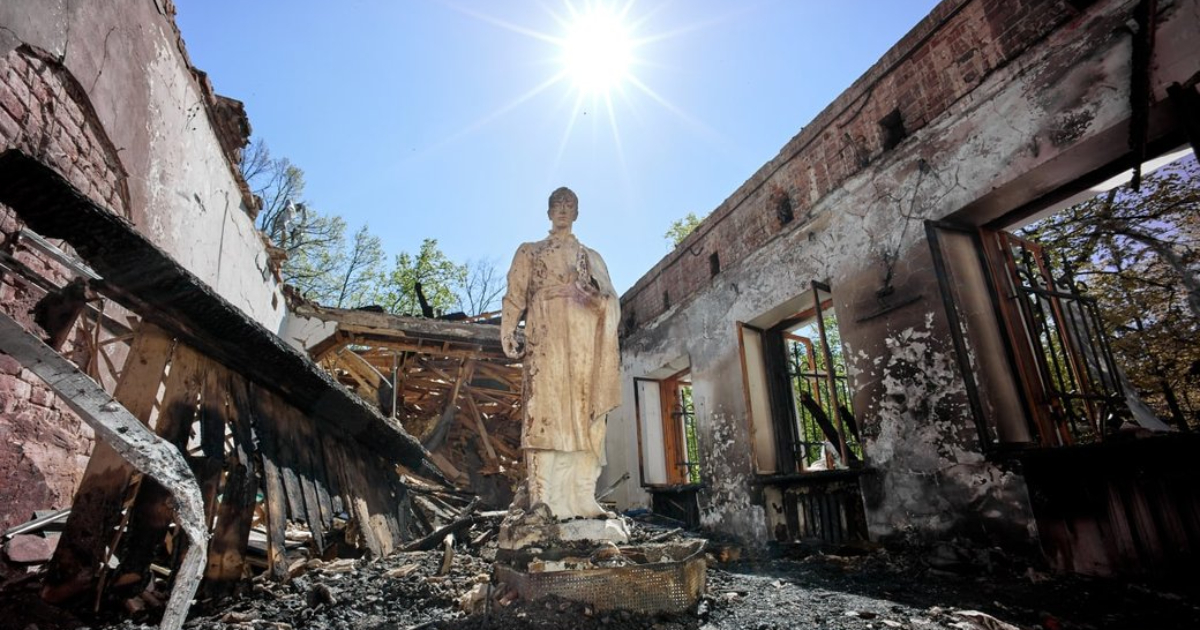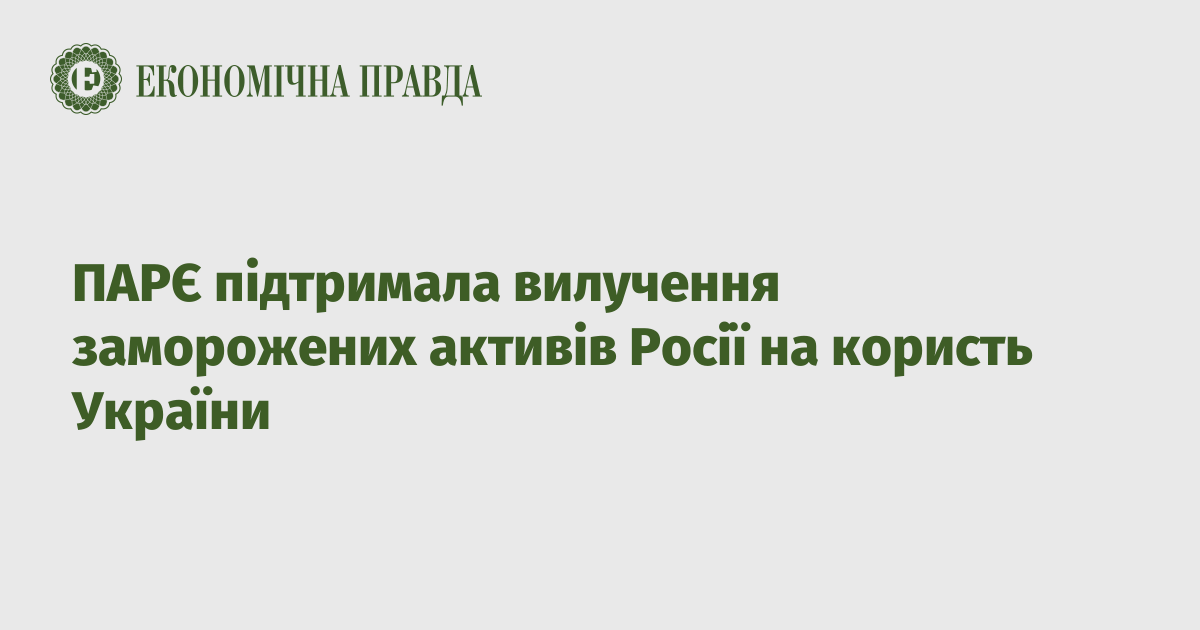Why was culture forgotten in the Ukraine Facility or the test for democracy and readiness to join the EU

In the 16th month of the full-scale war, realizing its long-term nature and trying to gradually join Ukraine in its bureaucratic planning processes, the European Commission announced a new, complex support tool – the so-called Ukrainian Fund. The design of the process of its preparation was made as inclusive as possible – Ukraine must independently decide on priorities and reforms, formulate an accountability framework and expected results – in exchange for 50 billion euros from 2024 to 2027 in the form of grants and loans.
Most of this amount is budget support for 39 billion euros, of which 19 billion is expected already in 2024. Instead, the Government of Ukraine should lay out a clear and realistic plan for their use (with quarterly reporting). To this end, the responsible Ministry of Economy has already been carrying out titanic work since July on the content of the proposal from the Ukrainian side.
Dozens of meetings, hundreds of stakeholders, a beautiful presentation about what should go to the UF, and presenters tired of continuous requests (mainly Oleksiy Sobolev – Deputy Minister of Economy of Ukraine).
The meeting with civil society took place on the initiative of the “Renaissance” Foundation on October 12. With representatives of culture and creative industries – October 19. These meetings did not provide an answer to the main question – what is the general vision of the struggle and recovery of Ukraine for the coming years (despite the prepared but frozen “Recovery Plan”). And they also testified to a high level of discretion when choosing priorities, because the evidence base, unlike the presentation, still remains non-public.
A real shock for representatives of culture and creative industries on October 19 was a meeting where they heard that culture “will be somewhere…we don’t know where, but definitely not here.”
That is, the country that claims to be a member of the EU says in a key joint document about the everyday future that culture is not yet a priority for us. The country that in 2022 demonstrated a miracle both on the battlefield and in the preparation of the questionnaire on the prospects of membership, in 2023, looking to the future, mentions human capital, among others, as rehabilitation, social protection, employment, migration, demography… and children’s meals in schools. And about the availability of housing for the population. All.
At the same time, the priorities of the EU for 2019-24 are: green transition, digital transition, a fair economy that works for and for people, EU leadership in the world, promotion of the European lifestyle, as well as protection and strengthening of democracy.
Why the Government of Ukraine does not see culture as a quality of life is obvious – the country is in survival mode, everything is for victory, the structural challenges in scale exceed those in 1991. Why culture is not seen in human capital is also obvious – the old model of public administration, focused on functions and not on people, management of physically and morally outdated networks of institutions, exhausted people in the budget sector, resource perception of “workforce”, deep conflict of fundamental values, on which institutions are built (and the growing demand to rethink the social contract). This is all clear.
But with such actions, Ukraine demonstrates a value gap to the EU, which calls into question the very prospect of integration.
Because it is not about freedoms, democracy, diversity, people-centeredness, after all – the maturity of political elites and communities. This is about the reincarnation of the “scoop”, reflected in actions, not presentations. About the failed test for growing up, the ability to balance the interests of large (oligarchs) and small (groups and communities), inclusiveness of the decision-making system and compliance with the principles of subsidiarity and proportionality. One gets the persistent impression that our politicians and bureaucrats did not open the primary sources, that their selective use of fragments of the proposal is a marker of carelessness and superficiality. And this is only about 68 pages of text (including appendices).
The most shocking thing is that instead of the humanitarian dimension of stability and sustainability, we are again focused on economic growth and investments (i.e. Total productivity factors), which are fundamentally weak in Ukraine. But they will not change significantly without structural reforms.
Read also: The government is required to include culture in the EU funding program for the reconstruction of Ukraine
Therefore, the Government faces a difficult dilemma – to maintain structural disparities in the economy, which are only exacerbated by forced migration and security challenges for capital, to continue to reproduce “magical” thinking in the style of “land of fools”, where the return on capital depends not on the quality of institutions, but on speed. burying gold in the ground”, OR start an unpleasant dialogue with the main managers of funds about moving away from the model of “eating in exchange for tacit consent”?.
Tectonic shifts are currently taking place in public consciousness – we are finally breaking ties with Russia, stopping the reproduction of its business models based on the concept of resource rent distribution, where people are slaves, indifferent labor, desubjectivized individuals and communities that do what they are told without asking – for what? Despite growing poverty, society is increasing its demand for culture in search of identity, self-awareness – demonstrating for the EU the same maturity that has been expected of us for a long time.
It is significant that the “creating conditions” mentioned by the EU in the UF project on the second page, “New European Bauhaus” on the fourth page, and “pre-condition for granting support” on the sixth page were simply not perceived by the authors. “Form” again absorbed “content”. Approaches, mechanisms and practices of preparation for making important political decisions have NOT changed.
I (like the Europeans) did not see the main thing in the presentation – value synchronization and a structured vision of the future. Another set of slogans, promises about “developed and approved strategies” does not inspire anyone anymore. And here’s why:
- The donor coordination platform, launched in 2020, still lacks a transparent and coordinated interaction mechanism. For donors, by the way, it makes life easier, but it does not benefit people whom they never reach, creating a Mecca in Buch and Borodyanka. So, with each donor, the Ministry of Finance conducts painstaking and consistent work on budget support. Yes, government officials and Ms. Stefanishyna are in touch with their political representatives every day. But the time has come to move from emotional “scratching” to intelligent “bureaucracy”. And we clearly failed this challenge.
- The quality of life in the EU is described quite simply – comfort, happiness, well-being. Each of these words describes the subjective perception of an individual (a Eurobarometer respondent), who with his “voice” lets politicians understand what is important and a priority for him. How did we describe the quality of life in the UF presentation? “Overcoming poverty and destitution”… as it is. We have to survive. Whether we thereby inspire the EU to come closer to membership – I have my doubts.
- The coming-of-age test is about having a frankly unpleasant conversation with stakeholders. About what will no longer be, because no one needs it. That the search for solutions should be collaborative, not “reference”. That “functions” should be replaced by “results”. That “quality” and “discipline” defeat “chaos” and “imitation of turbulent activity”. That self-organization and representativeness of sectors should help the Government to find difficult solutions. That investing in people, not machines, is critical. That political will must prevail over political expediency. Because now is a war.
- When people ask me why the reforms “didn’t work” in 2015 or 2019, I answer very simply – what institutional basis did they have? How and why has (not) changed corporate (organizational) culture in the public sector? Why do we constantly create “plans” from a “blank slate”?
All areas need change. They are always difficult to do, but easier – in the most difficult times, because war destroys the old and inefficient, encouraging the creation of flexible and multifunctional new. After all, our adaptability is what helps us survive this genocidal identity war.
Therefore, the choice of the method of preparation of the UF plan is already a “beacon” for all “developed” partners about what can and should be expected from us in the foreseeable future. And this choice is not yet in favor of Ukraine’s image.
Yaroslav Petrakov, expert of the “Rebuilding Ukraine together” project, especially for UP. Life.
Publications in the “View” section are not editorial articles and reflect exclusively the author’s point of view.











